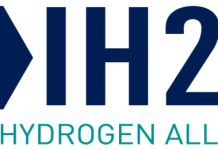Sekisui Chemical has announced plans to initiate mass production of next-generation perovskite solar cells (PSCs) by 2027.
The solar cells, which are thin, flexible, and lightweight, hold the potential to become a low-cost alternative to traditional silicon solar cells.
Their compact nature could also significantly reduce the space needed for solar panels, offering a more efficient solution for generating solar power.
New Company and Investment Plans
In partnership with the Development Bank of Japan (DBJ), Sekisui will establish a new company in early January to design, manufacture, and sell PSCs.
The venture will operate under a license from Sekisui Chemical.
The total cost of the project is expected to exceed 310 billion yen ($1.97 billion), with approximately half of the funding coming from government subsidies.
Phased Investment Strategy
Sekisui plans to implement a phased investment strategy to support the new venture.
The first step will involve an investment of 90 billion yen to build a 100-megawatt production line by 2027.
Following that, the company aims to expand with a gigawatt-class production line by 2030. This gradual approach will allow Sekisui to scale up production while ensuring efficient growth in the market.
Targeting Public and Private Sectors
The company envisions a primary focus on promoting PSCs in the public sector, particularly in gymnasiums that serve as evacuation centers during natural disasters.
Their lightweight and flexible characteristics make them ideal for such applications.
Furthermore, Sekisui plans to expand its business by reducing production costs through mass production.
The company intends to drive demand by targeting roofs and exterior walls of private-sector factories and warehouses.
As reported by reuters.com, By leveraging these innovative solar cells, Sekisui aims to contribute to a more sustainable energy future while expanding its market reach.
































